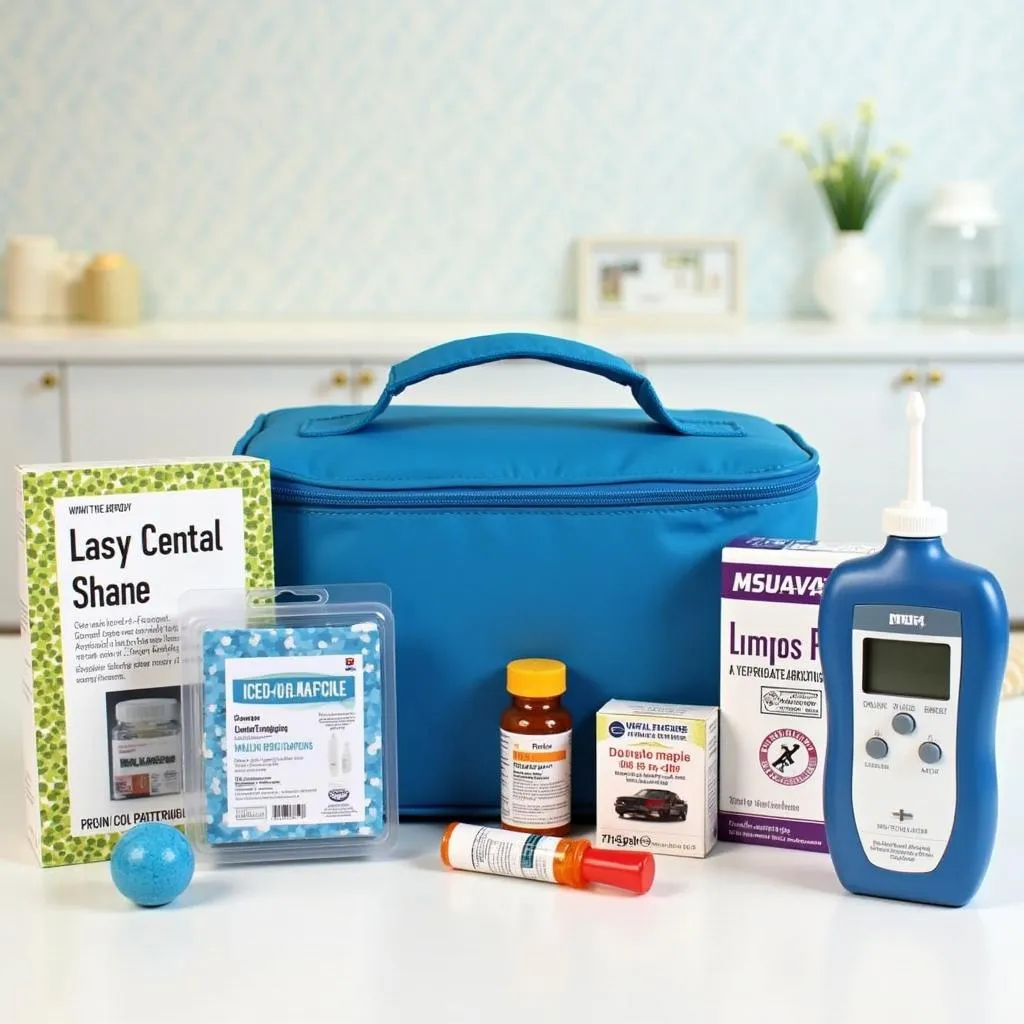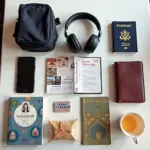Picture this: you’re strolling down the sun-kissed streets of Barcelona, the scent of paella wafting through the air, your worries melting away with each delicious bite of tapas. But amidst the excitement, you remember you have medication that needs to stay cool.
Don’t let this dampen your travel bug! Traveling with medication that requires refrigeration might seem daunting, but with a bit of planning and the right equipment, it’s entirely manageable. This guide will equip you with all the information you need to confidently navigate airport security, pack like a pro, and ensure your medication remains safe and effective throughout your adventure.
Understanding Your Medication and its Needs
Before you pack your bags and grab your passport, let’s start by understanding the specific needs of your medication.
Type of Medication and Refrigeration Requirements
Different medications have different temperature sensitivities. While some require strict refrigeration, others might remain stable at room temperature for a short period. Start by:
- Consulting your doctor or pharmacist: They can tell you the exact temperature range for your medication and advise you on how long it can be stored outside refrigeration.
- Checking the medication label: Look for specific instructions regarding storage temperature.
Trip Duration and Destination Climate
A weekend getaway to a temperate city like London will require different strategies compared to a three-week trek through the humid rainforests of Costa Rica.
- Short trips: For shorter journeys, using ice packs and an insulated travel bag might suffice.
- Longer trips: You might need to consider portable refrigerators or pre-arrange medication delivery to your destination.
- Extreme climates: Destinations with extreme heat or humidity will require extra precautions.
Packing Your Refrigerated Medication Like a Pro
Packing for a trip is an art, and packing temperature-sensitive medication even more so.
Choosing the Right Travel Equipment
- Insulated travel bags: These are essential for keeping your medication cool. Look for bags specifically designed for medical supplies, as they offer better insulation.
- Ice packs or gel packs: Opt for reusable, travel-sized packs. Remember, gel packs tend to stay colder for longer than traditional ice packs.
- Temperature monitoring devices: These handy gadgets allow you to keep a constant eye on the temperature inside your cooler, giving you peace of mind.
 Packing Refrigerated Medication for Travel
Packing Refrigerated Medication for Travel
Airport Security and Traveling with Medication
Navigating airport security with medication can feel tricky, but a little preparation goes a long way:
- Keep medications in their original packaging: This allows security personnel to easily identify your medication.
- Carry a doctor’s note: While not always required, a letter from your physician explaining the need for refrigerated medication can be helpful, especially for international travel.
- Contact the airline: It’s a good idea to inform your airline in advance about your medication needs. They can guide you on their specific policies and regulations.
Staying Cool on the Go: Tips for Maintaining Medication Temperature
You’ve packed your medication, navigated airport security, and now you’re ready to explore! But how do you ensure your medication stays at the right temperature throughout your journey?
- Hotel room refrigerators: Most hotels can provide you with a refrigerator in your room, allowing you to safely store your medication.
- Requesting assistance: Don’t hesitate to ask for help! Restaurants, cafes, and even local pharmacies might be willing to store your medication temporarily in their refrigerators.
 Traveler Requesting Medication Storage
Traveler Requesting Medication Storage
Commonly Asked Questions about Traveling with Refrigerated Medication
Can I bring liquid medication that needs refrigeration on a plane?
Yes, you can typically bring liquid medication exceeding the standard 3.4-ounce limit, but it’s crucial to declare it to TSA agents at the security checkpoint.
What happens if my medication gets too warm?
If your medication is exposed to temperatures outside of its recommended range, contact your doctor or pharmacist immediately for guidance.
Are there any restrictions on bringing refrigerated medication into different countries?
Yes, some countries have specific regulations regarding importing medication. Research the rules of your destination beforehand and carry necessary documentation, like prescriptions or doctor’s notes.
Planning Ahead: A Story from the Travelcar Community
“Last summer, we went on a family trip to Rome. My son has Type 1 diabetes and requires refrigerated insulin. We were initially apprehensive about keeping his medication safe amidst the Italian heat. We contacted our airline beforehand, packed his insulin in a well-insulated travel bag, and carried a doctor’s note. Everything went smoothly, and we had an incredible trip, all thanks to a bit of pre-planning!” – Sarah, a travel enthusiast and member of the TRAVELCAR community.

